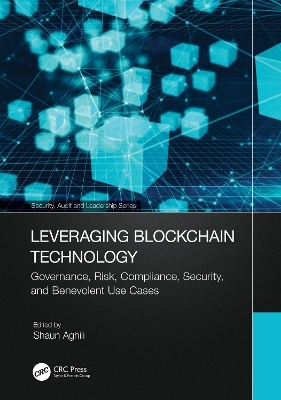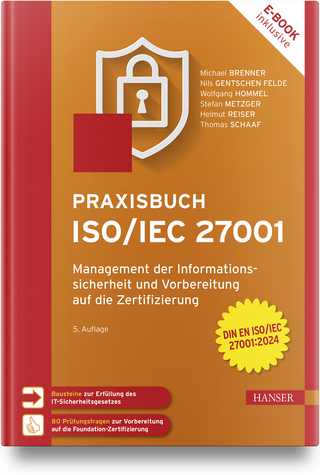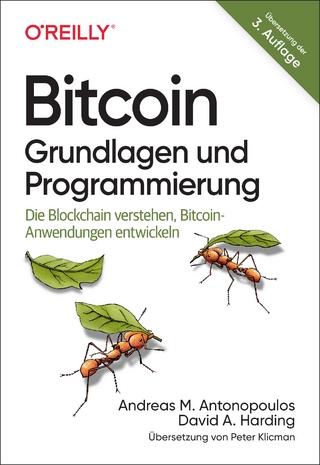
Leveraging Blockchain Technology
CRC Press (Verlag)
978-1-032-61100-6 (ISBN)
- Lieferbar (Termin unbekannt)
- Versandkostenfrei
- Auch auf Rechnung
- Artikel merken
Blockchain technology has the potential to help mankind in various ways, some of which include but are not limited to:
Decentralization and Transparency: Blockchain technology allows for decentralization of data and transactions, making them more transparent and accountable. This is particularly important in fields such as finance, where trust and transparency are critical.
Increased Security: Blockchain technology is inherently secure due to its distributed nature, making it very difficult for hackers to compromise the system. This makes it an ideal solution for data and information storage, particularly in areas such as health and finance, where privacy and security are of utmost importance.
Faster Transactions: Blockchain technology eliminates the need for intermediaries, reducing the time and cost associated with transactions. This makes it an ideal solution for international trade, remittances and other types of financial transactions, especially in parts of the world where a great number of individuals do not have access to basic banking services.
Immutable Record: One of the fundamental attributes of blockchain is its immutability. Once data is added to the blockchain, it becomes nearly impossible to alter or delete. This feature ensures a tamper-resistant and reliable record of transactions, crucial for maintaining integrity in various industries, including supply chain management and legal documentation.
Smart Contracts: Blockchain technology supports the implementation of smart contracts, which are self-executing contracts with the terms of the agreement directly written into code. This automation streamlines processes and reduces the risk of fraud, particularly in sectors like real estate and legal agreements.
Interoperability: Blockchain’s ability to facilitate interoperability allows different blockchain networks to communicate and share information seamlessly. This attribute is pivotal for creating a unified and interconnected ecosystem, especially as various industries adopt blockchain independently. Interoperability enhances efficiency, reduces redundancy and fosters collaboration across diverse sectors.
Leveraging Blockchain Technology: Governance, Risk, Compliance, Security, and Benevolent Use Cases discusses various governance, risk and control (GRC) and operational risk-related considerations in a comprehensive, yet non-technical, way to enable business leaders, managers and professionals to better understand and appreciate its various potential use cases. This book is also a must-read for leaders of non-profit organizations, allowing them to further democratize needs that we often take for granted in developed countries around the globe, such as access to basic telemedicine, identity management and banking services.
Shaun Aghili, an award-winning management professor, is the lead faculty of Concordia University of Edmonton’s Master of Information Systems Assurance Management (MISAM). MISAM is Canada’s only graduate-level program in information systems auditing. With numerous professional designations to his name, Dr. Aghili is a certified management accountant (CMA), an internal auditor and risk assurance specialist (CIA, CRMA), a fraud examiner (CFE), an information systems auditor (CISA), and an information systems and cloud security professional (CISSP-ISSMP, CCSP). Shaun has also completed several blockchain certifications, such as Certified Blockchain Expert and Certified Blockchain Security Professional. Dr. Aghili has authored over 90 published articles, book chapters and conference proceedings, including his latest books titled Fraud Auditing Using CAATT: A Manual for Auditors and Forensic Accountants to Detect Organizational Fraud (2019) and The Auditor’s Guide to Blockchain Technology: Architecture, Use Cases, Security, and Assurance (2022).
Part 1: Blockchain data structure, governance, risk, privacy, security and digital assets considerations. 1. Blockchain data and architecture considerations. 2. Blockchain governance considerations. 3. Operational risks in blockchain technology. 4. Privacy considerations in blockchain technology. 5. Blockchain security considerations. 6. Digital assets valuation and financial reporting. Part 2: Blockchain benevolent use cases. 7. The use of self-sovereign identity in blockchain systems. 8. Enhancing voting/e-voting through blockchain. 9. Humanitarian aid and disaster relief using blockchain. 10. Enhancing healthcare in underserved regions through blockchain. 11. Non-traditional banking services for the underserved. 12. Use of blockchain in Islamic finance.
| Erscheinungsdatum | 18.10.2024 |
|---|---|
| Reihe/Serie | Security, Audit and Leadership Series |
| Zusatzinfo | 22 Tables, black and white; 3 Line drawings, black and white; 3 Illustrations, black and white |
| Verlagsort | London |
| Sprache | englisch |
| Maße | 178 x 254 mm |
| Gewicht | 560 g |
| Themenwelt | Mathematik / Informatik ► Informatik ► Datenbanken |
| Informatik ► Netzwerke ► Sicherheit / Firewall | |
| Mathematik / Informatik ► Informatik ► Theorie / Studium | |
| Recht / Steuern ► Privatrecht / Bürgerliches Recht ► IT-Recht | |
| Technik ► Nachrichtentechnik | |
| Wirtschaft ► Volkswirtschaftslehre | |
| ISBN-10 | 1-032-61100-6 / 1032611006 |
| ISBN-13 | 978-1-032-61100-6 / 9781032611006 |
| Zustand | Neuware |
| Informationen gemäß Produktsicherheitsverordnung (GPSR) | |
| Haben Sie eine Frage zum Produkt? |
aus dem Bereich


